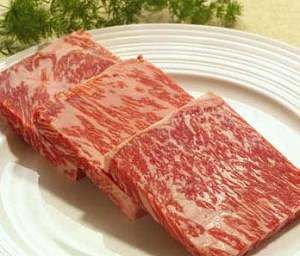Once again, beef is revered as the most important part of the growing muscle diet plan. When Arnold Schwarzenegger and Frank Columbus heard this so-called “latest progressâ€, they would feel overwhelmed, because they had started to use steak as their main meal since the 1970s—far before science experiments. Confirmation of the following experience: At least one or two beef meals in the diet five times a day.

1. beef rich in sarcosine
The sarcosine content of beef is higher than that of any other food, which makes it particularly effective for muscle growth and strength enhancement. In the first few seconds of training, sarcosine is a source of muscle fuel that can effectively replenish adenosine triphosphate so that training can last longer.
2. Beef with vitamin B6
The greater the demand for protein, the more vitamin B6 should be added to the diet. Beef contains enough vitamin B6 to help you boost immunity, promote protein metabolism and synthesis, and help your body recover after stress training.
3. Beef with carnitine
The contents of carnitine and sarcosine in chicken and fish are very low, but the content of beef is high. Carnitine is mainly used to support the metabolism of fat and produce branched-chain amino acids. It is an amino acid that plays an important role in body building muscle growth.
4. Beef contains potassium and protein
Potassium is a mineral that is relatively lacking in the diet of most athletes. Low levels of potassium inhibit protein synthesis and the production of growth hormone, which affects muscle growth. Beef is rich in protein: 4 ounces of lean loin can produce 22 grams of first-class protein.
5. Beef is a low-fat source of linoleic acid
Beef has a low fat content, but it is rich in linoleic acid, and these potential antioxidants are effective against tissue damage caused by weightlifting and other sports. In addition, linoleic acid can also act as an antioxidant to keep muscle mass.
6. Beef contains zinc and magnesium
Zinc is another antioxidant that helps to synthesize proteins and promote muscle growth. Zinc works with glutamate and vitamin B6 to boost the immune system. Magnesium supports protein synthesis, increases muscle strength, and more importantly, improves the efficiency of insulin synthesis and metabolism.
7. Beef iron
Iron is a necessary mineral for hematopoiesis. In contrast to the poor iron content in chickens, fish and turkeys, beef is rich in iron.
8. Beef with alanine
The role of alanine is to produce sugar from the dietary protein. If you don't have enough carbohydrates, alanine can supply the muscles with the energy needed to ease the deficiencies and allow you to continue training. The biggest benefit of this amino acid is that it can liberate muscles from the burden of supplying energy.
9. Beef with Vitamin B12
Vitamin B12 is essential for the production of cells, and the role of red blood cells is to bring oxygen to muscle tissue. Vitamin B12 can promote the metabolism of branched-chain amino acids, and thus provide the body with the energy needed for high-intensity training.
10.Diversification of beef consumption
If it is eaten day after day or even months, the chicken breast becomes annoying. Beef is different, and the hind legs, flanks, upper loins and thin slices of meat are all different in taste and texture, and it is indeed not the same as the boring chicken breast.
Mortuary Refrigerator
Mortuary Refrigerator
Medton Medical , https://www.medton.cn